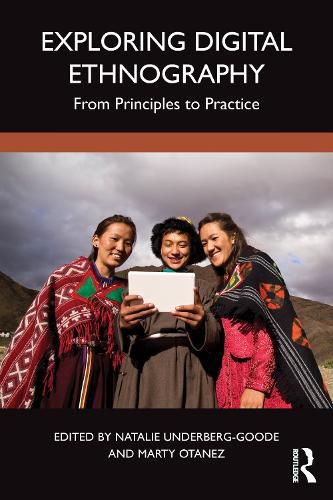Readings Newsletter
Become a Readings Member to make your shopping experience even easier.
Sign in or sign up for free!
You’re not far away from qualifying for FREE standard shipping within Australia
You’ve qualified for FREE standard shipping within Australia
The cart is loading…






Exploring Digital Ethnography: From Principles to Practice places digital ethnography within the context of the production of multimedia, multisensory "research-creation" pieces using a variety of methods, tools, and techniques.
This book provides new insights into how digital tools and concepts can facilitate the deliberation process, while they can also be used to materialize knowledge in new ways that engage with audiences in more dynamic formats. Drawing on a series of case studies on digital and interactive storytelling, digital photography and video, fictional worldbuilding, autoethnographic cartooning and more, it demonstrates the potential of digital tools and concepts to reach new audiences and to illustrate new approaches to solving problems. The case studies presented draw, in part, on multiple elements of participatory digital archive and museum work, itself part of the larger field of participatory visual and digital methods.
Exploring Digital Ethnography: From Principles to Practice will equip readers with new ways of producing knowledge, solving problems, engaging student learning, and communicating with the public. It will be a valuable text for researchers, educators, and students in digital ethnography and anthropology, as well as related fields.
$9.00 standard shipping within Australia
FREE standard shipping within Australia for orders over $100.00
Express & International shipping calculated at checkout
Exploring Digital Ethnography: From Principles to Practice places digital ethnography within the context of the production of multimedia, multisensory "research-creation" pieces using a variety of methods, tools, and techniques.
This book provides new insights into how digital tools and concepts can facilitate the deliberation process, while they can also be used to materialize knowledge in new ways that engage with audiences in more dynamic formats. Drawing on a series of case studies on digital and interactive storytelling, digital photography and video, fictional worldbuilding, autoethnographic cartooning and more, it demonstrates the potential of digital tools and concepts to reach new audiences and to illustrate new approaches to solving problems. The case studies presented draw, in part, on multiple elements of participatory digital archive and museum work, itself part of the larger field of participatory visual and digital methods.
Exploring Digital Ethnography: From Principles to Practice will equip readers with new ways of producing knowledge, solving problems, engaging student learning, and communicating with the public. It will be a valuable text for researchers, educators, and students in digital ethnography and anthropology, as well as related fields.